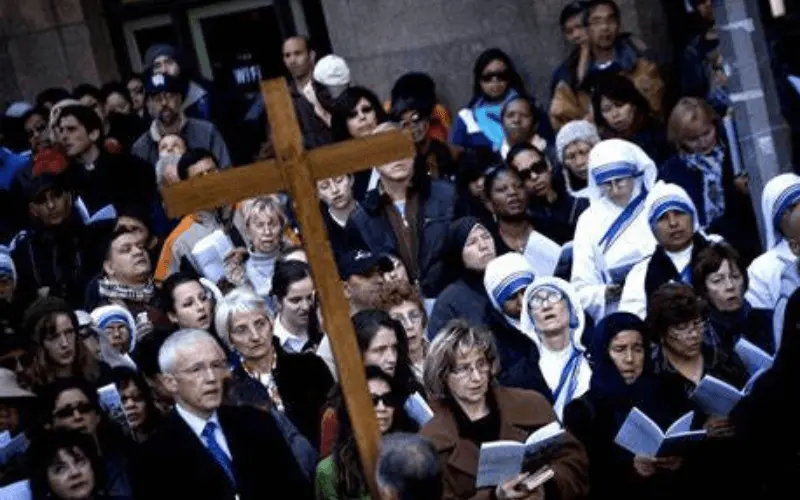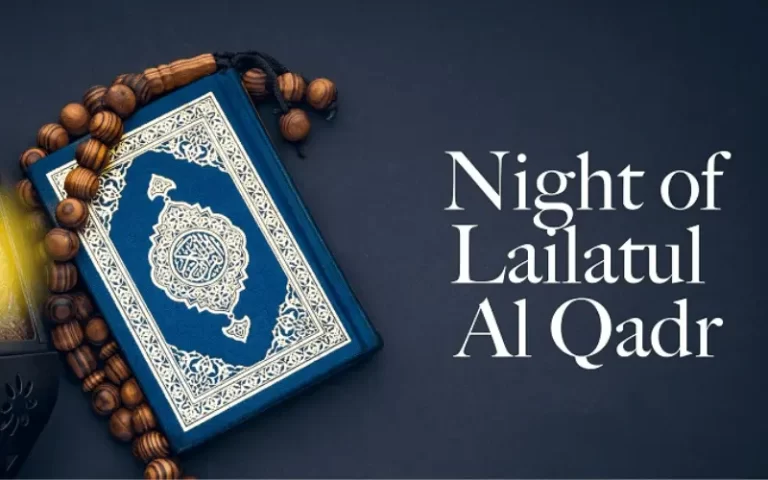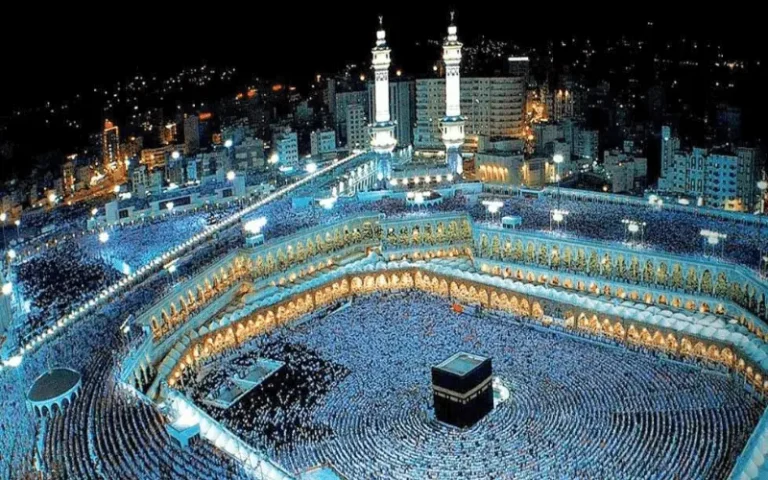Good Friday
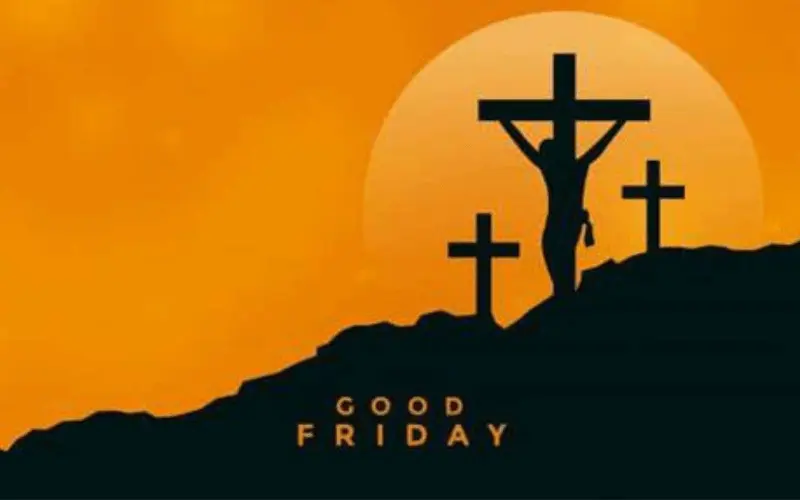
Good Friday is a special day for Christians. It’s when they remember Jesus Christ’s crucifixion and death at Calvary.
What is Good Friday, what is the history, importance, and observations on this day? In this article, you’ll learn all about it. Just ensure you stay around till the end so you can learn everything well.
Read other Religious Holidays Guides by daysdiscuss
What’s Good Friday?
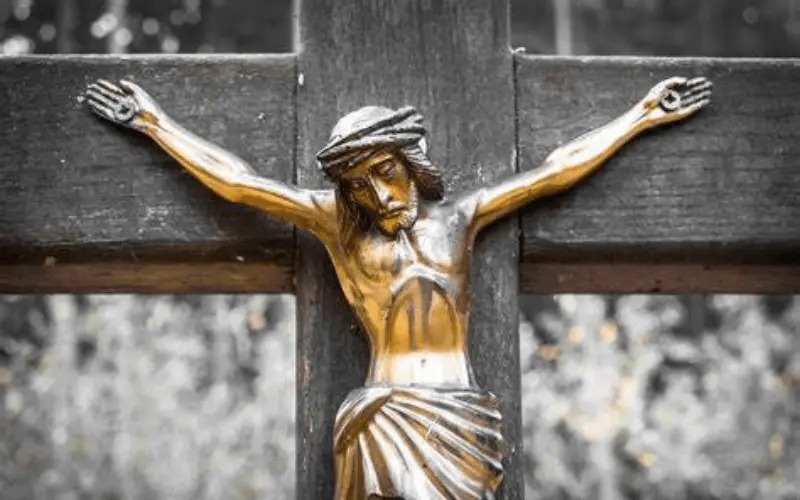
On Holy Friday, Christians remember the Crucifixion of Jesus Christ, which happens every year on the Friday before Easter Sunday. The date varies each year because it is determined by the lunar calendar.
This Christian holiday is also known as Holy Friday, Great Friday, Great and Holy Friday, and Black Friday. People feel sad and reflective on this day because they think about Jesus’ sacrifice to save people from their sins.
Many Christians go to church, join processions, and do things like fasting and praying to show their devotion on Black Friday.
Why is it called Good Friday if Jesus died?

Good Friday, termed as such in Old English, signifies a day of holiness. It’s alternatively known as Holy Friday. Yet, in a broader context, Good Friday is inseparably linked with Easter Sunday, a jubilant commemoration of Jesus’ resurrection. Without His prior death, the subsequent resurrection wouldn’t hold significance.
On Holy Friday, Jesus willingly suffered and died by crucifixion as the ultimate sacrifice for our sins.
D.A. Carson wrote, “It was not nails that held Jesus to that wretched cross; it was his unqualified resolution, out of love for his Father, to do his Father’s will—and it was his love for sinners like me.” It is a good day because it was the day he conquered sin and death so that we will never be apart from God on this side of heaven or the other.
There has been ongoing discussion about the origin of the name Good Friday. According to Justin Holcomb, some Christian traditions refer to it as “Sorrowful Friday,” as in the German term “Karfreitag.” In English, the term “Good” has sparked debate, with some suggesting it may have evolved from the older name “God’s Friday.” However, regardless of its etymology, the name Good Friday remains fitting because the suffering and death of Jesus, despite its severity, represented the profound fulfillment of God’s plan to redeem humanity from sin.
It’s called Good Friday because, by Jesus’ death, he became the final, complete sacrifice for our sins. We couldn’t have erased our sins. Our hands would have been forever stained with every single sin for a lifetime. But Jesus broke the bonds of death and sin.
What is the link between Good Friday and Easter?
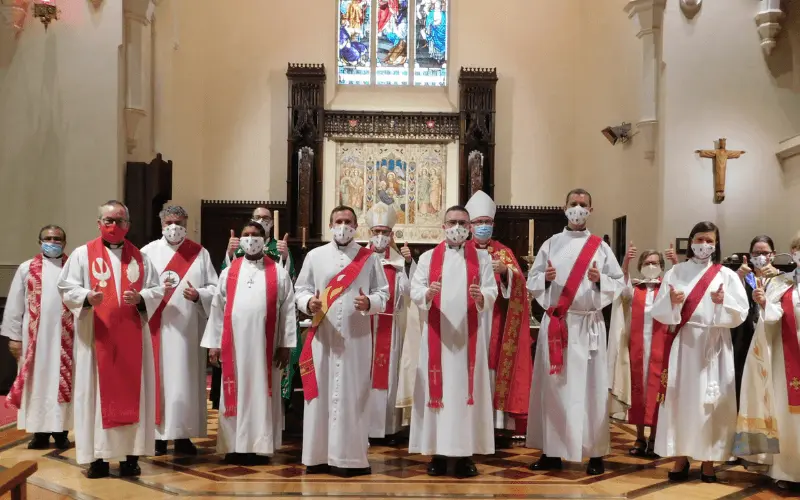
Good Friday and Easter are closely linked in the Christian tradition. Holy Friday commemorates the crucifixion and death of Jesus Christ, which occurred on the Friday before Easter Sunday. Easter, on the other hand, celebrates the resurrection of Jesus from the dead, which occurred on the third day after his crucifixion, corresponding to Easter Sunday.
So, Holy Friday marks the somber event of Jesus’ crucifixion, while Easter Sunday celebrates his resurrection, together forming the central events of the Christian faith.
Holy Friday symbolizes more than sorrow; it’s a beacon of hope and renewal. Even amidst profound darkness, there exists a glimmer of hope. Jesus’ crucifixion wasn’t the culmination but the genesis of a transformative journey. His resurrection signifies triumph over death, offering eternal life to those who embrace his teachings.
History of Good Friday
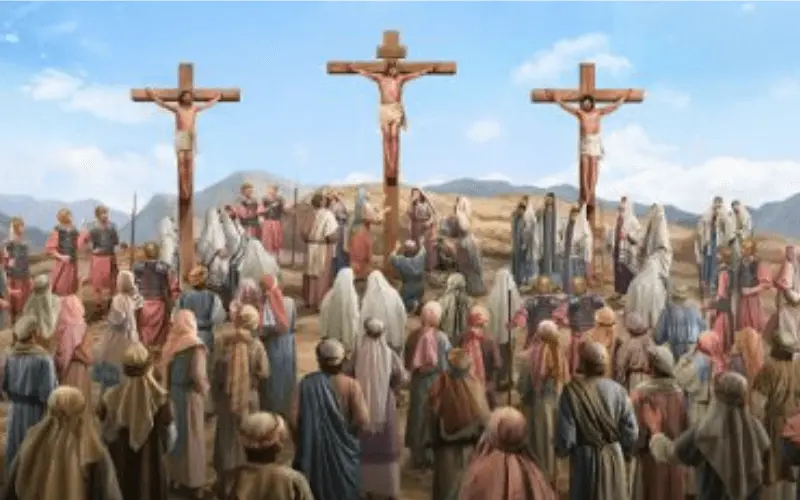
Holy Friday commemorates the crucifixion of Jesus Christ and is a central event in Christian theology. According to the New Testament of the Bible, Jesus was arrested by the Roman authorities in Jerusalem after being betrayed by one of his disciples, Judas Iscariot. He was then put on trial before Pontius Pilate, the Roman governor of Judea, who ultimately sentenced him to death by crucifixion.
The crucifixion took place on a hill outside Jerusalem known as Golgotha, meaning “place of the skull.” Jesus was nailed to a wooden cross and left to die alongside two criminals. According to Christian belief, Jesus willingly accepted his death as an atoning sacrifice for the sins of humanity.
Holy Friday is observed during Holy Week, the week leading up to Easter Sunday, which celebrates Jesus’ resurrection from the dead. The significance of Good Friday lies in its reflection of the Christian belief that Jesus’ death on the cross marked the culmination of God’s plan for the redemption and salvation of humanity. It is a day of solemn remembrance, prayer, and contemplation for Christians worldwide, symbolizing the profound sacrifice and love demonstrated by Jesus Christ.
Importance of Good Friday

Holy Friday holds profound significance in Christian theology as it commemorates the crucifixion of Jesus Christ. Its importance lies in several key aspects:
Overall, Holy Friday holds immense importance in Christian tradition as a day of profound theological significance, spiritual reflection, and hope for believers around the world.
When is Good Friday 2024,2025,2026?
| Year | Date | Day |
|---|---|---|
| 2024 | March 29 | Friday |
| 2025 | April 18 | Friday |
| 2026 | April 3 | Friday |
Good Friday Observations
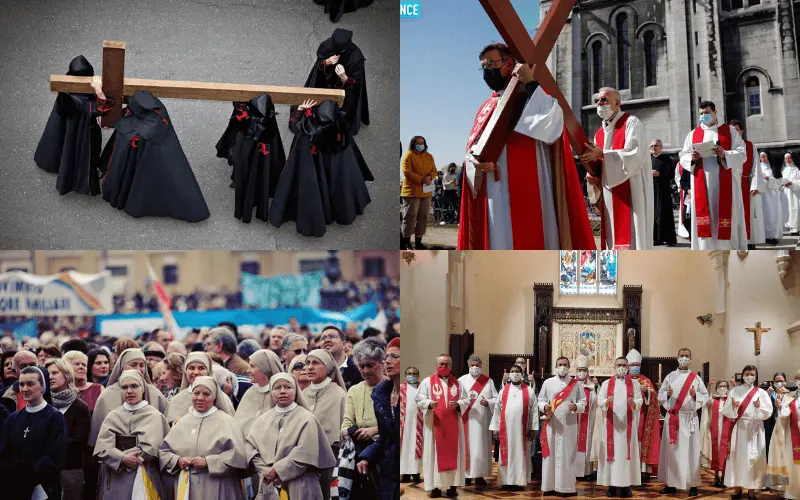
On Good Friday, various activities are observed by Christians around the world to commemorate the crucifixion of Jesus Christ and reflect on the significance of his sacrifice. Some common activities include:
1. Church Services
Many Christians attend special church services on Holy Friday, often including prayers, scripture readings, hymns, and sermons focused on Jesus’ crucifixion and its theological significance.
2. Veneration of the Cross
In some traditions, worshippers participate in ceremonies where they venerate or kiss a cross, symbolizing their reverence for Jesus’ sacrifice on the cross.
3. Stations of the Cross
Some churches hold Stations of the Cross, a devotional practice that involves reflecting on the events leading up to Jesus’ crucifixion through a series of stations or images depicting key moments from his journey to Calvary.
4. Fasting, Abstinence, and prayer
Good Friday is observed as a day of fasting and abstinence in many Christian traditions, where believers abstain from consuming meat and may limit their food intake as a form of spiritual discipline and solidarity with Jesus’ suffering. The physical act of fasting is to abstain from food or activity to devote that time to prayer
5. Acts of Compassion and Charity
Some Christians use Good Friday as an opportunity to engage in acts of compassion and charity, such as visiting the sick or elderly or offering assistance to those in need, following Jesus’ example of selflessness and love for others.
6. Quiet Reflection and Meditation
Many individuals observe Good Friday as a solemn and reflective day, spending time in quiet prayer, meditation, or personal reflection on the meaning of Jesus’ sacrifice and its implications for their faith and life.
7. Burial shroud
On Good Friday, the Burial Shroud typically refers to the linen cloth believed to have been used to wrap the body of Jesus Christ after his crucifixion. According to Christian tradition, Jesus’ body was laid in the tomb and wrapped in a linen cloth before his resurrection on Easter Sunday.
On Friday afternoon, during the Vespers of Great Saturday, typically around two o’clock, the Holy Shroud is brought out from the altar. This solemn moment coincides with the third hour of Holy Friday, the hour of Jesus Christ’s death on the cross. The Holy Shroud is then carried to the center of the church and placed in a tomb-like structure adorned with flowers and perfumes, symbolizing sorrow for Christ’s death. The Gospel is positioned at the center of the Shroud as part of this ritual.
As the Shroud is carried out, the hymn “Noble Joseph” is sung:
“The noble Joseph,
when he had taken down Thy most pure body from the Tree,
wrapped it in fine linen and anointed it with spices,
and placed it in a new tomb.”
8. Solemn Hymns
Singing hymns or songs as a form of worship to the Lord is a cherished practice among believers. Some congregations set aside the hours between 12 noon and 3 pm, the duration of Christ’s crucifixion, for dedicated singing sessions. This can be done individually with those you live with or collectively through virtual gatherings, such as video calls with small groups or family members, fostering a shared experience of praise and worship through song.
Overall, Good Friday is a day of solemn remembrance, worship, and spiritual contemplation for Christians, characterized by various religious observances and acts of devotion centered on the crucifixion of Jesus Christ.
In Bermuda, it’s a tradition dating back to the 19th century to fly handmade kites on Good Friday. These kites symbolize the cross of Jesus and his ascension into heaven. Similarly, churches in countries like Belgium and Mexico are adorned in black on Good Friday to honor Jesus’ suffering on the cross. The atmosphere on this day is solemn, with a pervasive sense of sadness felt in numerous towns and villages. In Poland, many Christians observe Good Friday by fasting on dry bread and roasted potatoes. Additionally, egg decorating is a common practice in Poland and several other countries as part of Easter preparations.
Symbols of Good Friday
The crucifix or cross, symbolizing Jesus’ manner of death, holds significant prominence on Good Friday. Many crosses feature a representation of Christ, underscoring his sacrifice. Additionally, symbols such as black cloth veiling crosses, along with paintings and sculptures in churches and households, serve as visual expressions of mourning and reverence for the solemnity of the day.
FREQUENTLY ASKED QUESTIONS
Is a good Friday a public holiday?
Good Friday is a public holiday. It is a day when most people have the day off, and schools and many businesses are closed. It’s a day set aside to remember and honor Jesus’ crucifixion and death on the cross.
On which date Good Friday 2024 will be celebrated?
Good Friday 2024 will be celebrated on Friday, March 29. Good Friday is a significant Christian holiday that remembers the crucifixion and death of Jesus Christ on the cross at Calvary.
Is Good Friday a religious holiday?
Yes, Good Friday is a religious holiday observed by Christians worldwide. It is the day when Christian and Catholic churches remember and honor the crucifixion and death of Jesus Christ.

